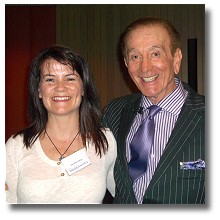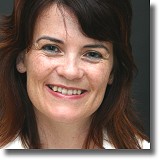If poetry bored you to tears in high school, there’s probably a really good reason.
At Ted Nicholas's Dream Information Publishing Seminar recently, I was wrestling with the idea of how to make poetry publishing profitable.
I have just published my second collection of poetry, 17 poems: one for every year of innocence. (Ginninderra Press published my first collection, Exposure, in 2003.)
As I listened to Ted speak about the importance of getting into an emotional state conducive to writing compelling copy, I started to compare the poetry writing and copywriting processes.
They’re similar, but different.
Let me explain.
Usually I write short poems with layers of meaning and emotion, because of course I write poems (or songs) about an experience, a moment or an event which affected me in some way. I’m baring my soul, and if I’ve touched on a universal theme in the process, then there’s a chance that readers may connect and empathise with my experience.
When I write marketing and sales copy, I write emotional and passionate words that will move, touch and inspire the prospect/reader. I set out to create that empathy on purpose.
The major difference between them is the intention.
As a poet, I write for myself. I suppose you could call it self-indulgent. I absolutely need to write. It’s a kind of purging. The words shoot out from my soul in some inexplicable, out-of-control trajectory, splattering all over the page. Sometimes I have to clean them up and make them more presentable. With a bit of luck, those who read my poem may find that it resonates with them. When I’m writing a poem, however, that’s the last thing on my mind.
With copywriting, it’s a different story. I write with the reader completely in mind. I sit down with this prospect, who has some desperate want which I intend to satisfy. I then have a conversation with this person, identify all his/her fears, hopes and expectations, and propel him/her inevitably towards taking whatever action I’m suggesting.
So, great poems create empathy in spite of the intention (or they don’t, in the case of those ones that bored you senseless at high school).
Great sales copy creates empathy because of the intention.
(Oh, and one pays more than the other.)
Remember to mind your language – and your intentions!
Monday, November 24. 2008
Why being a poet will NOT get you sales!
Wednesday, November 12. 2008
Jen and Ted's Excellent Adventure
 I was thrilled to have had the opportunity to attend the Dream Information Publishing Seminar presented by my mentor, Ted Nicholas, in Sydney this weekend. (That's me and him in the photo on the left.)
I was thrilled to have had the opportunity to attend the Dream Information Publishing Seminar presented by my mentor, Ted Nicholas, in Sydney this weekend. (That's me and him in the photo on the left.) Ted is a gentleman and a living legend, arguably one of the best direct marketers on this planet. I met him for the first time in 2007 at Mal Emery's Silent Killer Seminar, although I'd read his information and known about him for a lot longer than that.
He ran out on stage, had us waving our arms in the air as we shouted affirmations to change our emotional states, and grooved with us to the Bee Gees.
He gave us his all over the two days. He provided phenomenal value in the depth and breadth of content, sharing his insights and thoughts not only about copywriting, but about life, health, wealth, and taxes!
I find that as a copywriter, it's vital for me to revisit regularly the essentials of emotional direct response copywriting, of which Ted is an absolute master.
Ted's enthusiasm and energy, as well as meeting and talking with other seminar attendees, reignited my excitement about copywriting and the power of compelling words. After working on a major editing project almost full time for the last nine months, it was great to be reminded of how satisfying it is to create copy and words that sell.
One subtle distinction which Ted made that really resonated with me was that sales letter copy must not only BE true, it must SEEM true. This is very much the case in a marketplace overloaded with large bold red headlines screaming promises of permanent cures and money making schemes.
The trick is to write the fine line between both.
Another great suggestion of Ted's was that sometimes a killer sales letter headline will be found among the testimonials provided by your customers.
Thank you Ted and Bethany.
And thanks also to all my fellow seminar attendees, who helped make the two days such a rewarding and memorable experience. I look forward to hearing from you and communicating soon.
In the meantime, don't forget to mind your language!
(Page 1 of 1, totaling 2 entries)

